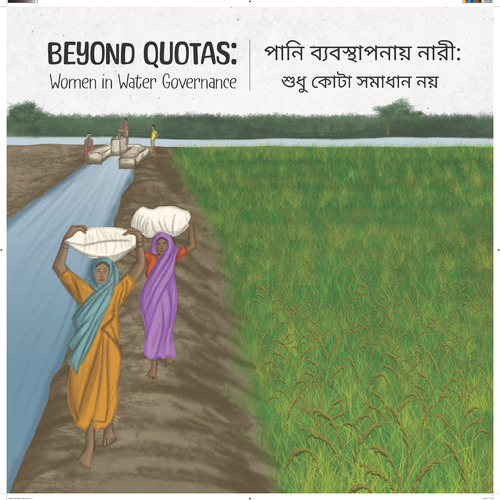Beyond Quotas: Women in Water Governance
Abstract
The polder zones of Bangladesh are home to about nine million people. The majority of this population is engaged in the agricultural sector. Women play a crucial role in agriculture and food systems, and their involvement in farm production and management is growing with increasing male out-migration. But effective water management poses a huge challenge due to tidal hydrology, salinity, waterlogging, and climate stresses such as cyclones and droughts. In response to the water challenges, the government of Bangladesh implemented a community governance approach in the early 1990s by establishing Water Management Groups (WMGs). In the policy, the executive committee of the WMGs must include 30% women members. The primary goal was to promote user participation in decision-making process in water management. Women need water for agricultural production and postproduction, but their participation in water governance has been undermined. Formal structures, including quotas, have an increased representation of women in WMGs. But effective participation in water management decision-making is restricted by cultural norms, time poverty, limited information access and constraints in land and financial access. Women’s participation in water governance has positive outcomes on water management, agricultural productivity, and livelihoods. To promote effective women’s participation in water governance in polder zones, a holistic approach is needed, encompassing:
• Gender-sensitive campaigns
• Recognition & redistribution of unpaid work
• Equal land access
• Control over income
• Training and capacity-building

